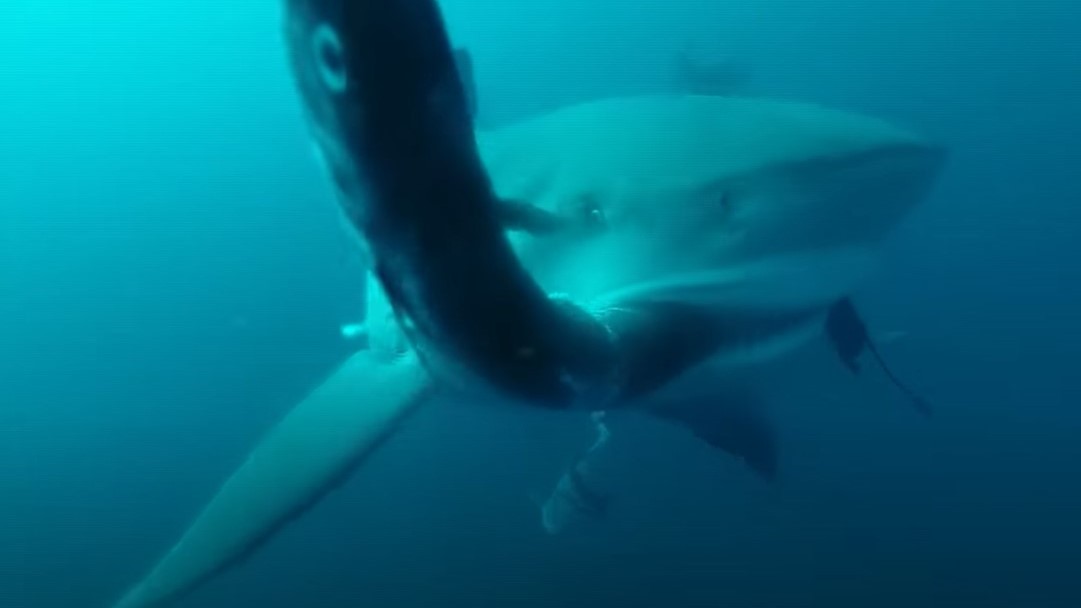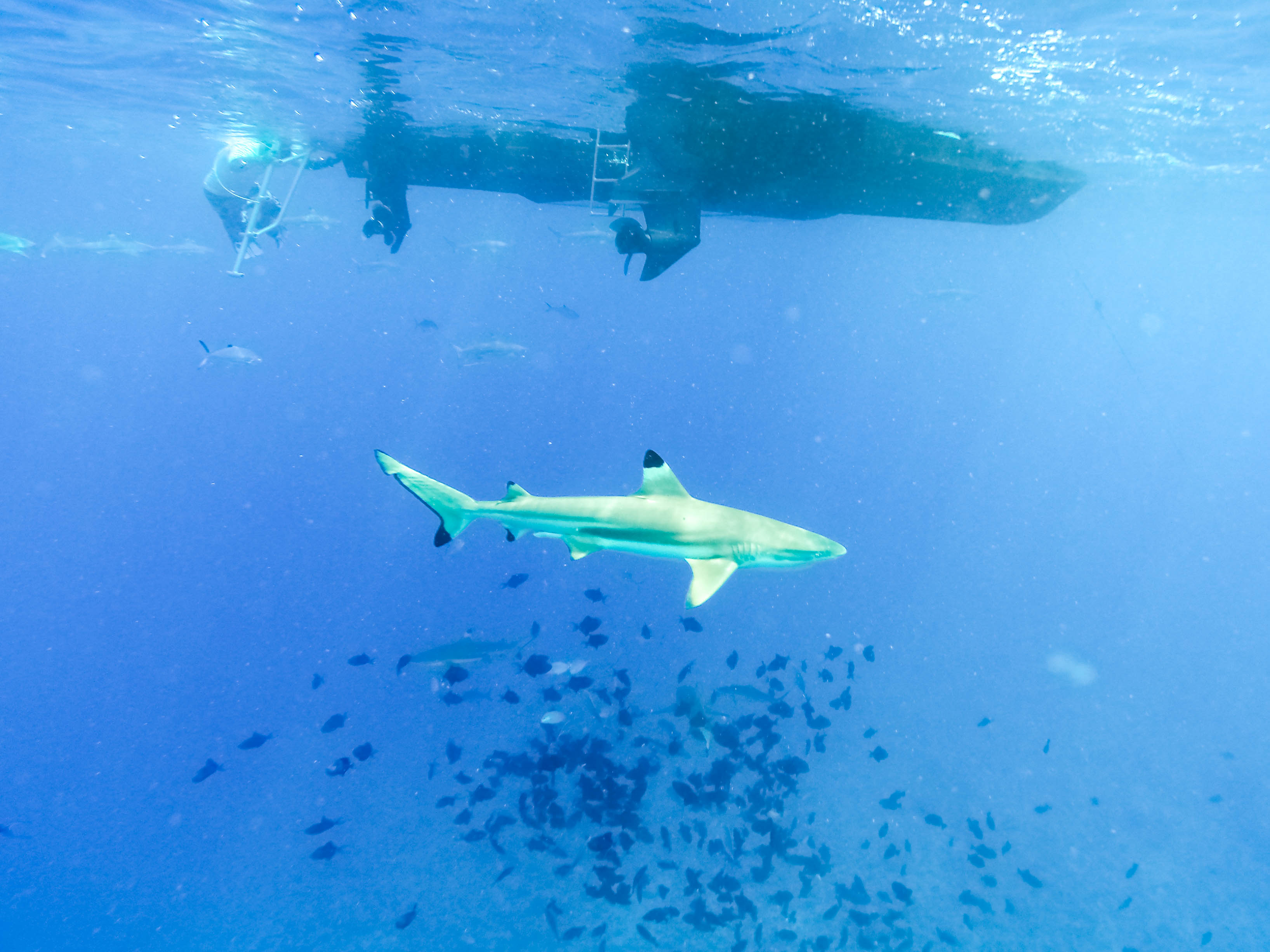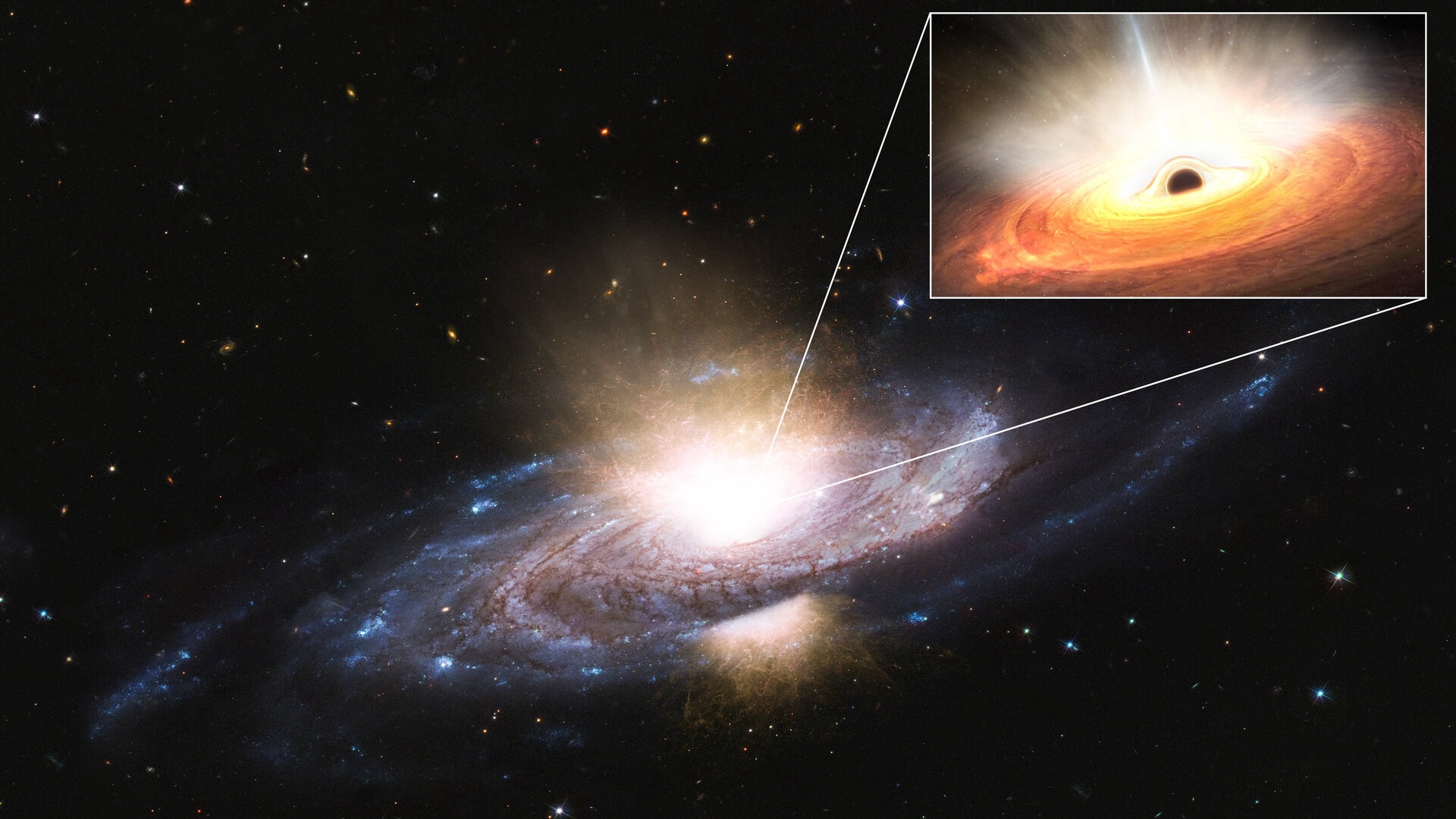'It's like we opened a buffet': Sharks in Gulf of Mexico learn to steal food from fishing nets
Sharks in the Gulf of Mexico are learning to associate boat engines with food, leading to more and more cases of depredation, experts say.
Sharks are feasting on fish caught by humans in the Gulf of Mexico after learning to associate boats with food, shark scientists say.
Instances of shark depredation in the region have increased significantly in the past decade, Marcus Drymon, a shark scientist at Mississippi State University, told Live Science in an email.
"Although difficult to demonstrate empirically, it does appear that there is [a] shift in behavior (i.e., a learned response)," he said.
In the new National Geographic "Sharkfest" special "Shark Beach with Anthony Mackie," researchers along the Gulf Coast investigate the impact of this growing conflict between fishers and sharks. "We're fishing in the same spot that the sharks are fishing in," Jasmin Graham, a marine biologist who founded Minorities in Shark Sciences, said in a clip from the documentary. #
Related: Great white sharks are hanging out in the twilight zone and scientists don't know why
"Sharks learn really, really quickly. They learn engine means food," she said. "So they start coming straight for the boats. Now we're in direct competition with them for the same fish, and that's when you get depredation."

Shark depredation affects fisheries worldwide, but it is particularly prevalent in the U.S. and Australia, where sharks and humans often overlap, leading to conflict. The problem is complicated. In the 20th century, humans decimated shark populations, and humans still kill an estimated 80 million sharks per year as a result of demand for their fins and through bycatch.
Sign up for the Live Science daily newsletter now
Get the world’s most fascinating discoveries delivered straight to your inbox.
But in some regions, protections have enabled shark numbers to rebound. For example, off the coast of Alabama, bull shark (Carcharhinus leucas) numbers increased fivefold between 2003 and 2020; scientists have attributed the population rebound to warmer waters that have enabled the sharks to thrive.

The popularity of recreational fishing has also increased, leading more sharks to come close to boats to feast. "It's like we opened a buffet," Mackie said in "Shark Beach."
Fishers are now reporting that shark behavior has changed off Southeastern states, with more sharks circling and lurking near boats, according to a December 2023 report from the South Atlantic Fishery Management Council. In response, many recreational and commercial fishers say they now operate farther offshore to prevent their catch from being taken and their gear from being damaged.
"Reports from anglers almost unanimously agree that depredation has gotten much worse in the past 5 to 10 years," Drymon said. "Unfortunately, there is a pretty significant risk (to sharks) in terms of retaliation. This has been quantified through surveys with charter captains and commercial fishermen, two groups whose livelihoods are directly impacted by depredation."
In an attempt to solve the problem, the National Oceanic and Atmospheric Administration is assessing bull sharks and sandbar sharks (Carcharhinus plumbeus) — the two species most often implicated in depredation — and collecting data on depredation events through reporting apps. The agency is also looking at ways of protecting anglers' catch, such as shark deterrent tech.
"They've got to eat; we've got to eat," Graham said. "We've got to figure out how we both eat."
In an email to Live Science, Graham said the issue of shark depredation points to a larger environmental issue: "It tells us our marine ecosystems are unstable and out of balance. We have to ensure there are enough fish to support our ecosystem predators (including humans) and enough healthy habitats for fish so that they can disperse more widely."
"Shark Beach with Anthony Mackie" will premiere on National Geographic on June 30 and stream July 1 on Disney+ and Hulu.

Hannah Osborne is the planet Earth and animals editor at Live Science. Prior to Live Science, she worked for several years at Newsweek as the science editor. Before this she was science editor at International Business Times U.K. Hannah holds a master's in journalism from Goldsmith's, University of London.










